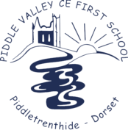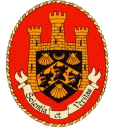
How we identify More Able
Identification
At The Purbeck School the identification process consists of two parts: an academic process and a pastoral process.
The academic identification process starts during KS2, using assessments completed in year 6, and then further testing at KS3, this can also consist of individual heads of department identifying the More Able students within their own curriculum area. Each Head of Department is responsible for communicating nominations to the co-ordinator of More Able students.
Departments and the higher and advanced performers’ coordinator use a variety of strategies in identifying More Able students, including:
- Student data from KS2 – KS3
- Pupil data
- Subject tests and exams
- Continuous assessment (including home learning)
- Pupil self assessments
- Observation of classroom performance
The pastoral part of the identification process is the responsibility of the House Leaders in consultation with form tutors. Pastoral judgements will be based upon:
- Pupil self-assessments
- Observation of pupils
- Pupil nominations
- Parent nominations
The co-ordinator for More Able students collates information from Heads of Department, House Leaders and CAT scores, in order to produce a register of More Able students. Students remain on the register throughout their time at The Purbeck School. Students will be noted on SIMS, and parents and students are informed by the More Able coordinator. Parents and students are also invited to attend an information event during the year which is hosted by the More Able coordinator.
Transition
The Purbeck School higher and advanced performance coordinator will work with all partnership primary schools to provide opportunities for the most able to attend master classes at The Purbeck School e.g. Marvellous Maths. The higher and advanced performance coordinator will request the higher and advanced performance register for Year 6 prior to the students joining The Purbeck School. In addition, students and parents transitioning into key stage 3, and later key stage 4, are given specific advice and guidance on option choices and progression to Russell Group universities.
Monitoring of Progress
The More Able cohort is monitored in the following ways:
- Individual progress in terms of assessment results is tracked and compared with other students.
- Any underachieving higher and advanced performance student in Year 11 has a personal mentor (in the summer term – and sometimes earlier).
- Form tutors and heads of year monitor and feedback on the progress of higher and advanced performance students, ensuring that students are making progress in the development of their social and interpersonal skills, as well as the development of their academic abilities.
- The analytical database SISRA is regularly (at least half termly) accessed and underachieving students identified by the higher and advanced performance coordinator. The coordinator will put measures (to include SEN department when necessary) in place to assist the students to achieve targets. Parents will be kept informed.
- If underachievement persists, the student will be brought to the attention of the senior manager for higher and advanced performance pupils.
- Classroom provision for the higher and advanced performer is monitored through observation as part of the on going cycle of lesson observations and work sampling (as specified in the Assessment, Recording and Reporting Policy). Observation may take the form of teaching and learning reviews, appraisal and peer observation activities.













